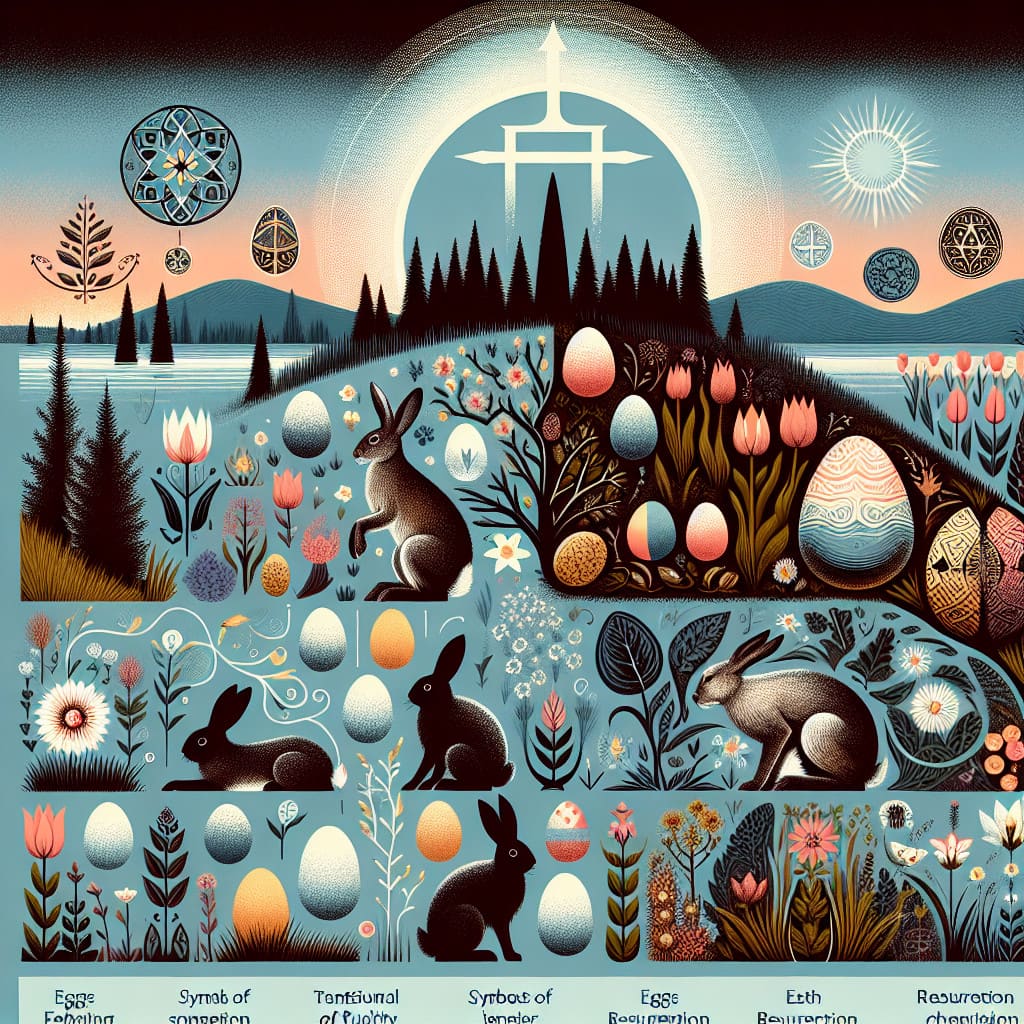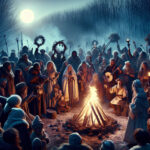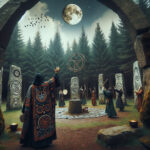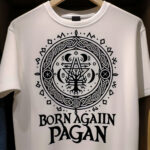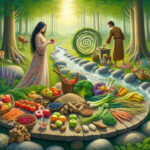Easter is one of the most widely celebrated holidays around the world, but many people are unaware of its pagan roots. While the holiday has been adopted and adapted by Christians, its origins are far more ancient, stretching back thousands of years to a variety of pagan festivals and traditions. In this article, we will explore the pagan meaning of Easter, examining its history and examining how the holiday has been adapted and incorporated into the Christian tradition.

Easter is a holiday steeped in tradition, with a rich history rooted in pagan beliefs. For centuries, Easter has been celebrated in many different cultures, with its symbolism and rituals varying from one place to another. From the ancient druids, who marked the festival of Eostre, to the early Christians who adopted the pagan customs, Easter has long been associated with the return of spring and the renewal of life.
What is the Pagan Meaning of Easter?
The pagan meaning of Easter is rooted in ancient rituals and beliefs. Easter was originally celebrated by the ancient Celts as a festival of renewal and fertility; a time to honor the return of spring and the renewal of life. The Christian church later adopted the pagan customs and adapted them to their own religious beliefs, although the core meaning of Easter remains the same.
Easter is a time of rebirth and renewal, symbolizing the resurrection of Jesus Christ and the hope of eternal life. The egg is a powerful symbol of new life, and the traditional Easter egg hunt is a reminder of the joy of the Easter season. The Easter bunny, another symbol of Easter, has its roots in pagan beliefs, representing fertility and abundance.
How is Easter Celebrated?
Easter is celebrated in many different ways around the world. In the United States, Easter is typically celebrated with a holiday meal, egg hunts, and special church services. In some countries, such as Germany, Easter is celebrated with special foods and decorations, including brightly colored eggs and chocolate bunnies. Other countries, such as Greece, celebrate Easter with traditional dances, music, and feasting.
Many of the traditional Easter activities are connected to pagan and Christian beliefs. The egg hunt is a symbol of the searching for Jesus after his death and resurrection. The Easter bunny is a symbol of fertility and abundance, and the Easter basket is a reminder of the gifts Jesus received from the Magi.
What are the Pagan Origins of Easter?
The pagan origins of Easter can be traced back to the ancient festival of Eostre. Eostre was held in honor of the Germanic goddess of spring and fertility, and was celebrated with feasting, dancing, and the exchange of brightly colored eggs. This festival eventually merged with the Christian celebration of Easter, and the symbols of Eostre became symbols of Easter.
The Easter egg is a particularly powerful symbol of Easter, with its symbolism of new life and fertility. In some countries, such as Russia, the Easter Egg is decorated with intricate patterns and given as a gift to friends and family.
What are the Symbols of Easter?
The symbols of Easter are a reminder of the ancient pagan beliefs and the Christian celebration of resurrection. The Easter egg is a symbol of new life, and is often decorated with intricate patterns. The Easter bunny is a symbol of fertility and abundance, and is often depicted with a basket of eggs. The Easter basket is a reminder of the gifts Jesus received from the Magi, and is often filled with colored eggs, candy, and other treats.
Easter is a time of celebration, renewal, and hope. Its pagan roots are still evident in its symbols and rituals, which remind us of the joy of the Easter season. Whether you celebrate Easter with a traditional meal, egg hunt, or church service, the pagan meaning of Easter is still alive and well.
The Pagan meaning of Easter is an important part of the history of this holiday. It is a reminder of the many traditions and symbols that have been passed down through the generations and has been adapted and changed to suit the needs of many different cultures. Although the original Pagan traditions have been lost to time, they still remain an important part of the Easter celebration. From eggs and bunnies to hot cross buns and Easter bonfires, these ancient symbols are a reminder of the joy, celebration, and renewal that Easter brings.
Easter is a time for family, friends, and the celebration of life. It is a time to remember the Pagan roots of this holiday, and to appreciate the many customs and symbols that have been passed down through the generations. The Pagan meaning of Easter is an important part of the history of this holiday, and it will continue to be celebrated for many years to come.

